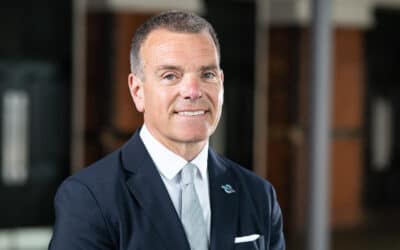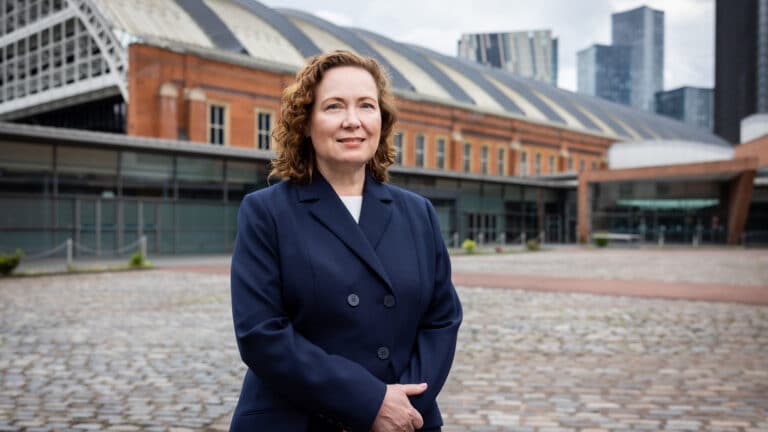Lori Hoinkes, the CEO at Manchester Central, has indicated a push towards international markets as the business enters a new era of leadership.
Hoinkes, who is originally from Canada and has significant experience in the global events and exhibitions sector, joined Manchester Central in May, leaving her role as chief growth officer at London-based Montgomery Group.
Hoinkes believes that international trade, a side of the business which has been subdued in recent years due to the after-effects of the Covid-19 pandemic, is now ripe for reinvigorating: “I’ve been impressed by the strength and growth of Manchester Central over recent years, however I believe we have a clear opportunity to capitalise on the increased attention from international markets which are now looking at Greater Manchester as a key global city-region to invest and do business in.”
“We already facilitate conferences and global exhibitions for international organisers, and now is a perfect time to build on our position as a world-leading events centre. We have a prime opportunity to lead on this geography and create significant value in this market, particularly given the levels of new investment coming into the city.”
Greater Manchester, the largest city-region economy outside London, has become a thriving hub for investment and economic growth in recent years. In February, it ranked top large UK city for foreign direct investment in the FDI Intelligence European Cities and Regions of the Future 2024.
Earlier this month, global accountancy consultants EY stated that: “The North West remains one of the UK’s top regions for attracting foreign direct investment” and named Manchester as “one of the UK’s leading cities for investment – a testament to the resilience of the wider region’s business community and the calibre of its talent.”
Hoinkes added: “North America is obviously a traditional key market for the events sector and will continue to be so. We have excellent relationships with organisers such as HYROX and JAMfest (new to the venue for 2025) however we are also seeing the European markets specifically looking at the North West as a key geography in which to host conferences and exhibitions and a key city in which to meet like-minded investors.”
The venue, which succumbed to a pandemic-related drop in international visitors over the past five years, has now returned to pre-Covid levels, with Hoinkes pointing to a number of high-profile events as proof of the international attractiveness of the city. It’s forecast that the prestigious international music convention WOMEX in October will alone generate a total value of business of £28.3m.
Alongside the expansion of its global presence, Hoinkes also seeks to drive forward community partnerships to enhance the venue’s contribution to the city’s vibrant economy.
“By its very name and location, this venue is the heart of the city and the investment it brings into the wider region is imperative to Greater Manchester’s economic growth,” she said. “While I am already immensely impressed by the community partnerships we have in place, including an extremely strong local supplier policy, we can be bolder.
“By leaning into Manchester’s reputation as a city that ‘gets things done’ and working with our trusted destination partners at Marketing Manchester, the City Council, as well as inward investment and sector bodies, we can really elevate our shared successes to the next level.
“We already generate a significant impact on the local economy through a top down approach – for every £1 spent in our venue by visiting delegates, £6 is spent in Manchester’s wider hospitality sector from eating out, tourism and accommodation stays.
“Our venue is where deals are done and we will be looking at how we can support startups and small businesses in the entrepreneurial phase to showcase their services, capitalise on spare space and meet organisers hosting here. We want to support them to be in the right place at the right time.”
Manchester Central currently attracts over half a million visitors to the city, bringing approximately £150m into the local economy in an average year.














